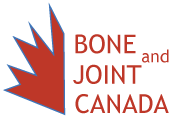Postoperative Management
Postoperative management of the 3D’s is essential for the hip fracture patient. These challenging issues require a multidisciplinary approach that includes targeted nursing and rehabilitation assessment and interventions to manage these cognitive issues on a daily basis. In severe cases, pharmacological management through either the surgeon or another physician is recommended.
Detection:
- Building on the patient data gathered in the emergency department, patient/family assessment of premorbid functioning and any previous diagnosis of dementia. Social work/other assessment is recommended on Day 1-2 postoperatively.
- Assessment should occur routinely every shift using standardized assessment tools for delirium screening such as the Confusion Assessment Method (CAM).
- Assessment using standardized assessment tools for dementia using the Dementia Quick Screen, and in most cases the Mini-Mental State Examination (MMSE) and/or MOCHA, should occur by Day 3 postoperatively to identify underlying cognitive impairments and determine baseline cognitive status.
- Assessment using standardized assessment tools for depression such as the Geriatric Depression Scale, others, should be considered for patients presenting with symptoms of depression
- Assessment of underlying causes of delirium may include B12, thyroid stimulating hormone (TSH), complete blood count (CBC), GBCL, and liver profile.
- Regular assessment using standardized assessment tools to monitor the effectiveness of pain management. Standardized assessment tools should include those for patient with delirium/dementia.
Prevention and Management:
- Reduce delirium frequency and complications through a review of risk factors,
- Regular (at least every shift) assessment of symptoms using a delirium screening tool such as the Confusion Assessment Method (CAM)
- Delirium prevention and intervention protocols which have been found to reduce frequency and complications should be implemented and include:
- Orientation protocols (daily and as needed),
- Early mobilization and encouragement of independence in activities of daily living,
- Optimizing nutrition including appropriate assistance and positioning,
- Avoidance of medications with high anticholinergics and/or sedating properties,
- Non-pharmacological approaches to minimize the use of psychoactive drugs (e.g. benzodiazepines, antipsychotics),
- Optimal pain management with consideration for the use of regularly dosed acetaminophen and initiation of low dose narcotics as appropraie (avoiding Meperidine),
- Avoidance of physical restraints,
- Early removal of urinary catheters postoperatively and initiation of toileting protocols if incontinence is an issue,
- Sleep hygiene using non-pharmacological interventions (e.g. warm milk; warm blankets; hand massages; low light; minimal noise and interruptions through the night),
- Adaptive equipment for vision and hearing impairment,
- Restoration of serum electrolyte abnormalities, and
- Early intervention for volume depletion or overload.
- Proactive approaches using geriatric principles and where necessary, geriatric consultation, may reduce incidence and severity of delirium, and improve management of dementia in patients after hip fracture surgery.
- Use of medication may be considered for some patients when experiencing only severe symptoms of delirium, behavioural issues of dementia, depressive symptoms
- Delirium algorithms should be effectively used to assist healthcare practitioners in effective detection, prevention and management of delirium for hip fracture patients including regional geriatric program of Ontario – Geriatric Interprofessional Practice and Interorganizational Collaboration (GIIC); Vancouver Island Health Authority.
- Referrals to geriatric/dementia resources should be considered with planning, including Alzheimer Society; memory clinics; geriatric and psychogeriatric services; day hospital.
- Patient/family education resources help to improve understanding and provide direction about caring for people experiencing the 3D’s. Education for healthcare practitioners about the 3D’s is required to develop the knowledge, skills and judgement to effectively practice and care for hip fracture patients experiencing delirium, dementia and dementia. This should include knowledge about assessment tools; delirium management; care and communication with patients with cognitive impairment; behavioural symptom management.
